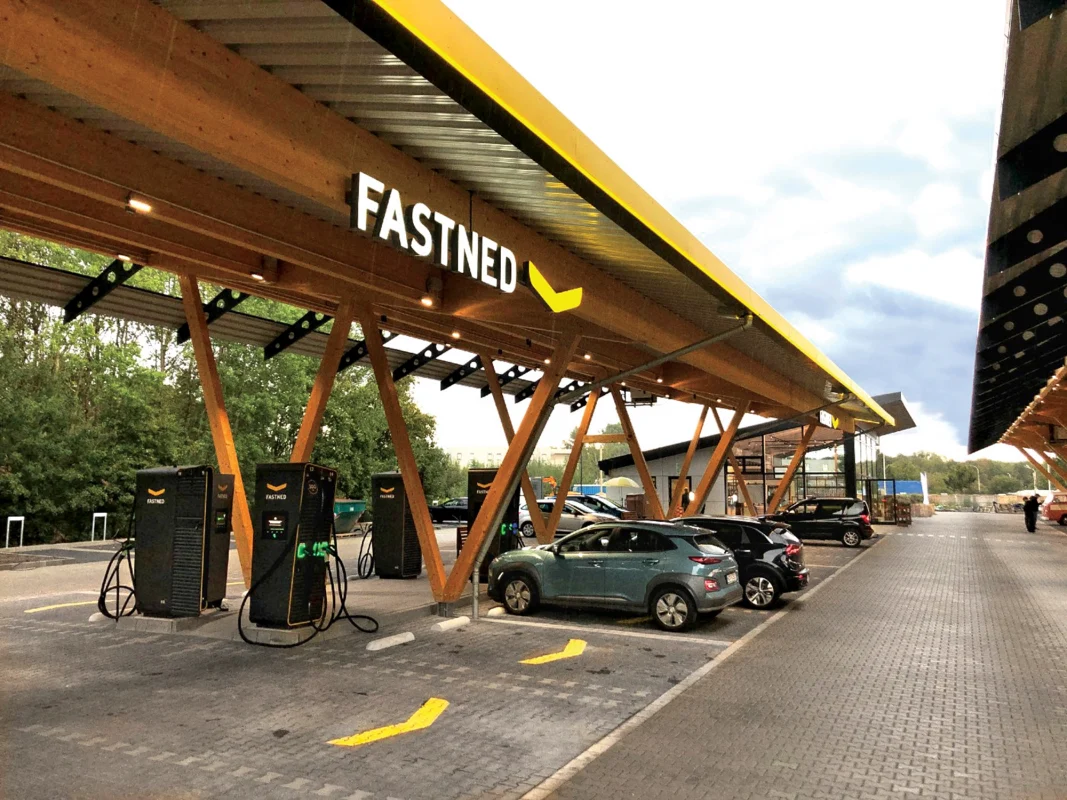According to experts, experience from Germany shows that preparing adequate and appropriate charging stations is one of the important factors and Vietnam should learn from this model.
The rate of charging stations in Vietnam is still too low
According to experts, Vietnam has set a goal that by 2050, all road motor vehicles and motorbikes participating in traffic will convert to using electricity and green energy. In this process, promoting the development of charging station infrastructure is an inseparable factor.
According to a study in the US, the lack of charging stations is one of three main barriers for consumers when deciding to buy and use electric vehicles.However, the current rate of charging stations in Vietnam is still low. As of 2021, only VinFast owns 150.000 charging ports installed in 63 provinces and cities nationwide. Therefore, the integration of charging stations into the road traffic infrastructure system in Vietnam needs to be carefully researched and guaranteed to be consistent.From researching models around the world, contributing to the development of charging stations in Vietnam, Prof. Dr. Wilmar Matinez, an electrical energy research expert from KU Leuven University (Kingdom of Belgium), commented, Vietnam should learn the German model.
The German government aims to have 2030 million fully electric cars by 15. By 2035, Germany as well as other countries in the European Union will ban the sale of new cars that emit CO2. The shortage of charging points is considered one of the biggest challenges hindering these goals.But recently, public charging infrastructure for electric cars in Germany continues to grow and the gap between supply and demand is starting to narrow. At the end of 2022, Germany announced the “Charging Infrastructure Master Plan”, laying the foundation to achieve 1 million qualified public charging points by 2030.
Charging a battery should be as easy as pumping gas
According to figures released by Germany's motor vehicle authority, Berlin plans to spend 6,6 billion euros ($6,17 billion) over three years from 2022. The focus of the plan is on building charging stations There is a shortage of supply in localities, especially in rural areas where charging points are harder to find than in big cities.Germany is also preparing the ground to be able to build new charging stations, especially locations along highways. Private electric car owners will be given subsidies to help install solar panels at home so their cars can be charged overnight. The government is also preparing to increase the load on the power grid as the number of electric vehicles increases.
Speaking when presenting the master plan for charging infrastructure development in 2022, German Transport Minister Volker Wissing noted: "The power grid will be under more pressure as the number of electric vehicles increases, so Germany must prepare be accommodated".The head of the German transport industry emphasized that in order for electric vehicles to be accepted, it is necessary to make charging the battery as easy as pumping gasoline and refueling as it is today.
Promote research and financial support
Emphasizing how to develop Germany's charging infrastructure, expert Matinez said that in the process of promoting charging infrastructure, Germany has been promoting investment in research and development (R&D) activities through grants, research funds. This includes an investment fund of up to 240 billion Euros, in addition to an additional 40 billion Euros from the European Joint Research Fund.According to Cleanenergywire, a German newspaper, there are two programs that support charging for households and fast charging for commercial cars and trucks.
One program will support charging infrastructure in private residential buildings with a combined support package of charging stations, photovoltaic systems and storage. With this program, Germany is expected to provide financial resources of up to 500 million euros and will begin in the fall of 2023.
In addition, fast charging infrastructure for commercial cars and trucks will receive another 400 million euros.From Germany's experience and applying it to Vietnam, expert Matinez said that first of all, Vietnam needs to soon choose a charging standard. The standard for plug types into the charging port will vary between regions and depends on the design of each vehicle model. Therefore, developing a charging station system that can meet the needs of all types of electric vehicles with different charging standards is also a challenge.In addition, the Government needs to issue preferential policies, encourage and support businesses, electric vehicle manufacturing companies, charging station suppliers and consumers.



